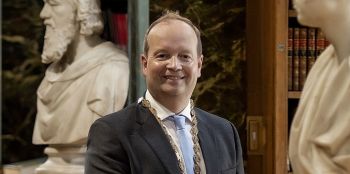Differentiating between a licence and a lease has been the subject of contention for many years. Simply describing an agreement as one or the other may be irrelevant if certain legal elements are either included or excluded, as may the parties’ intentions of what the agreement represents.
What is a Lease?
A lease creates a legal interest in a property for the tenant and includes four essential elements: the parties, the subjects, the rent and the term. Recently, the additional element of “exclusive possession” has been used to help distinguish between a licence and a lease.
What is a Licence?
A licence gives the licensee a limited right of occupation and is therefore effectively permission for a party to use the premises for a set period of time and usually for a particular purpose.
A recent Court decision highlights the hidden pitfalls
The issue of determining whether or not an agreement constitutes a licence or lease has been the subject of contention over the years. The need for contracting parties to exercise caution has been highlighted in the recent case of St Andrews Forest Lodges Ltd v Jeremy Grieve and Iona Grieve [2017]. As the new owners of Kincaple Lodge House, St Andrews Forest Lodges Ltd (SAFL) argued the agreement entered into with Mr and Mrs Grieves was a licence rather than a lease and therefore it did not provide the tenants with security of tenure.
Case background
Mr and Mrs Grieves had lived in and managed a holiday park business from Kincaple Lodge House at Kincaple Farm since 2007. In 2014 the business went into administration and with the agreement of the administrators, the couple continued to occupy the lodge until a purchaser was found. SAFL purchased the park including the lodge in 2015. Mr and Mrs Grieves negotiated the purchase of the lodge from the new proprietors and entered into an agreement to reside in the lodge until they could successfully complete the purchase. When the sale fell through, the question arose as to whether this agreement was a holiday let or licence, or a lease under which the Grieves would benefit from security of tenure.
SAFL submitted that the Grieves had no right or title to occupy the lodge because it was a holiday let or licence. They argued that even where there was agreement of the “four cardinal elements in a lease” the very fact that the parties did not intend to create a tenancy was sufficient for the agreement not be to be considered a tenancy. Further they claimed that as a holiday let, the agreement fell within the exception to an ‘assured tenancy’ outlined in Paragraph 8 of Schedule 4 of the 1988 Act and therefore didn’t attract the same protection an assured tenancy would in terms of Section 12 and that the agreement gave a mere right to occupy only.
The Grieves argued that regardless of any intention to create a holiday let they had a tenancy of the lodge. The fact that the agreement was called a holiday let was irrelevant and it was necessary to give meaning to the substance and facts of the agreement rather than just the words in order to determine its legal status.
The case decision
Ultimately the only ground on which SAFL submitted that the agreement was a licence and not a lease was that the parties did not intend it to be a lease. Applying all the facts, Sheriff Collins held that, as all the four essential elements of a lease were present, and there was exclusive possession (as the fifth element), the agreement could only be legally construed as a lease. The intention of the parties to create anything other than a lease was irrelevant.
The Sheriff also said “a holiday let is simply a tenancy, which, if it satisfies the terms of Paragraph 8 of Schedule 4 of the 1988 Act will not be an assured tenancy”.
The Sheriff went on to say a “tenancy does not become a holiday let just because one or both of the parties wish it so or describe it as such in a written agreement”. Whether or not an agreement is a licence or a lease is a “matter of law, not parties’ intentions” and parties cannot simply “contract out” of the 1988 Act.
Whilst the judgement is not binding, it is a useful reminder of the hidden pitfalls of licences and a reminder that true holiday lets are leases outwith the statutory protection of the 1988 Act.
Leases and Licences in Scots Law
In Scotland, it is widely accepted that there are four cardinal elements of a lease as explained above; and that in the absence of consensus ad idem (mutual agreement) as to these elements, or at least the first three (parties, subjects and rent), there will be no lease. Where there is no agreement on the duration the law sometimes infers a period of one year.
A licence on the other hand has been likened to a contract falling just short of a lease, under which the licensee has a right to use a specific part of the property for a particular purpose. The licence therefore creates only a limited personal right for the licensee.
Over the years it has become apparent that a lease and a licence are not always easily distinguishable from one another and that even where an agreement between parties is expressly termed a lease on the face of it, it may actually be a licence or vice versa.
It became recognised that a key factor in determining whether a licence is in fact a lease is whether or not the agreement gives (or was intended to give) exclusive possession or only partial possession. Generally there would be a lease in the former case but not in the latter.
Careful drafting is essential
Anyone considering entering into an agreement to occupy a property should be careful to ensure it is carefully drafted and be aware of the fact that whatever the parties decide to call the agreement, it is the reality of the situation that will determine whether or not it is a licence or a lease.
In the words of Lord Templeman in the English case of Street v Mountford [1985]:
"The manufacture of a five-pronged implement for manual digging results in a fork even if the manufacturer, unfamiliar with the English language, insists that he intended to make and has made a spade"
Meet the team

Marianne Stirling
Title: Debt Recovery Manager and Accredited Debt Recovery Paralegal
Location: Glasgow













